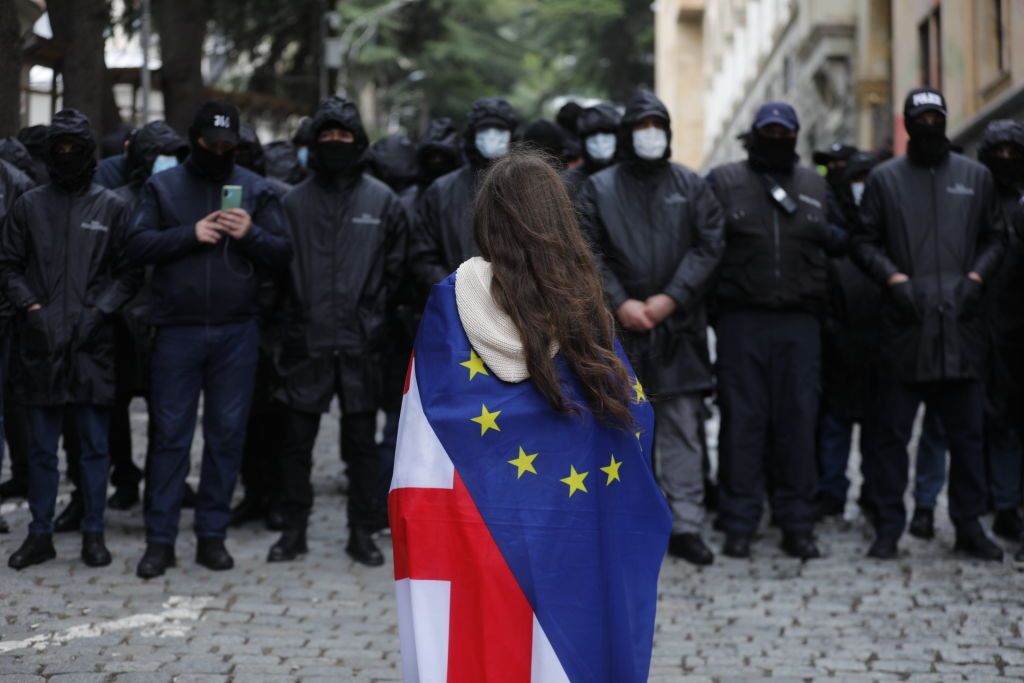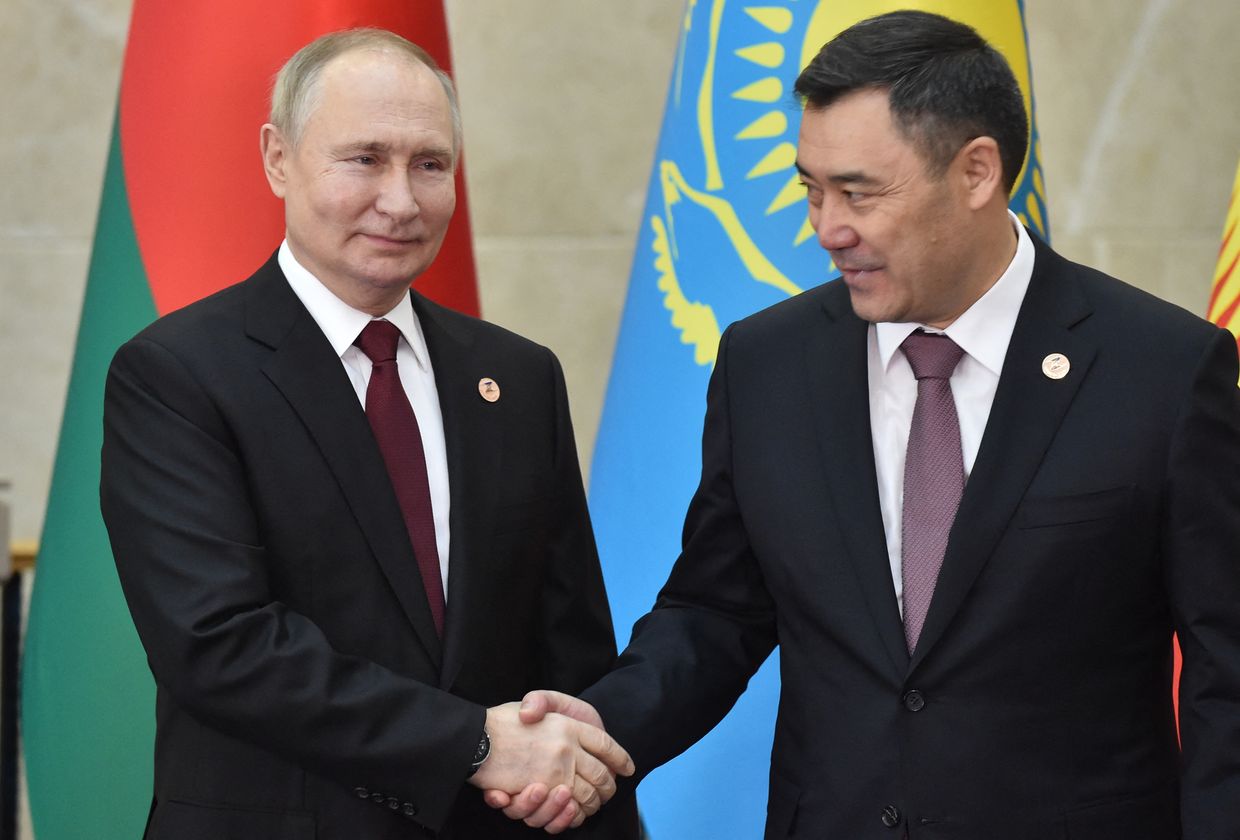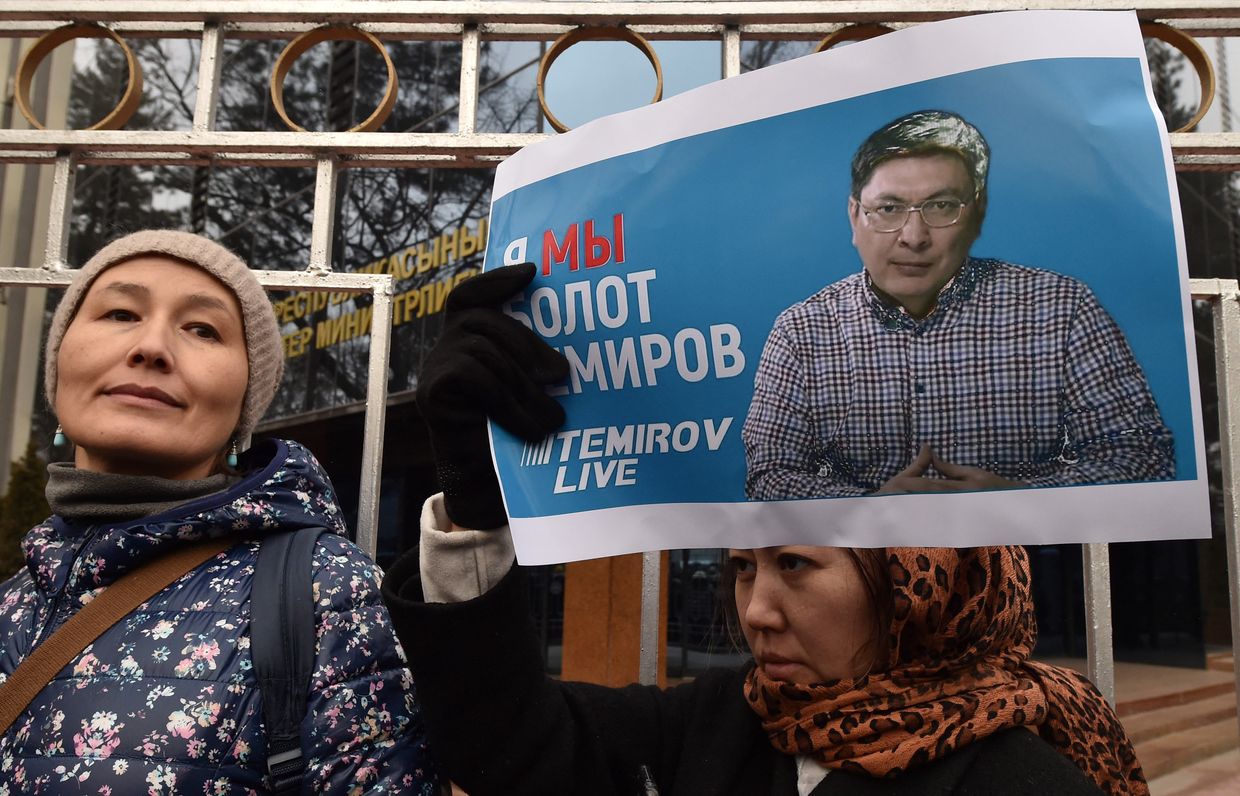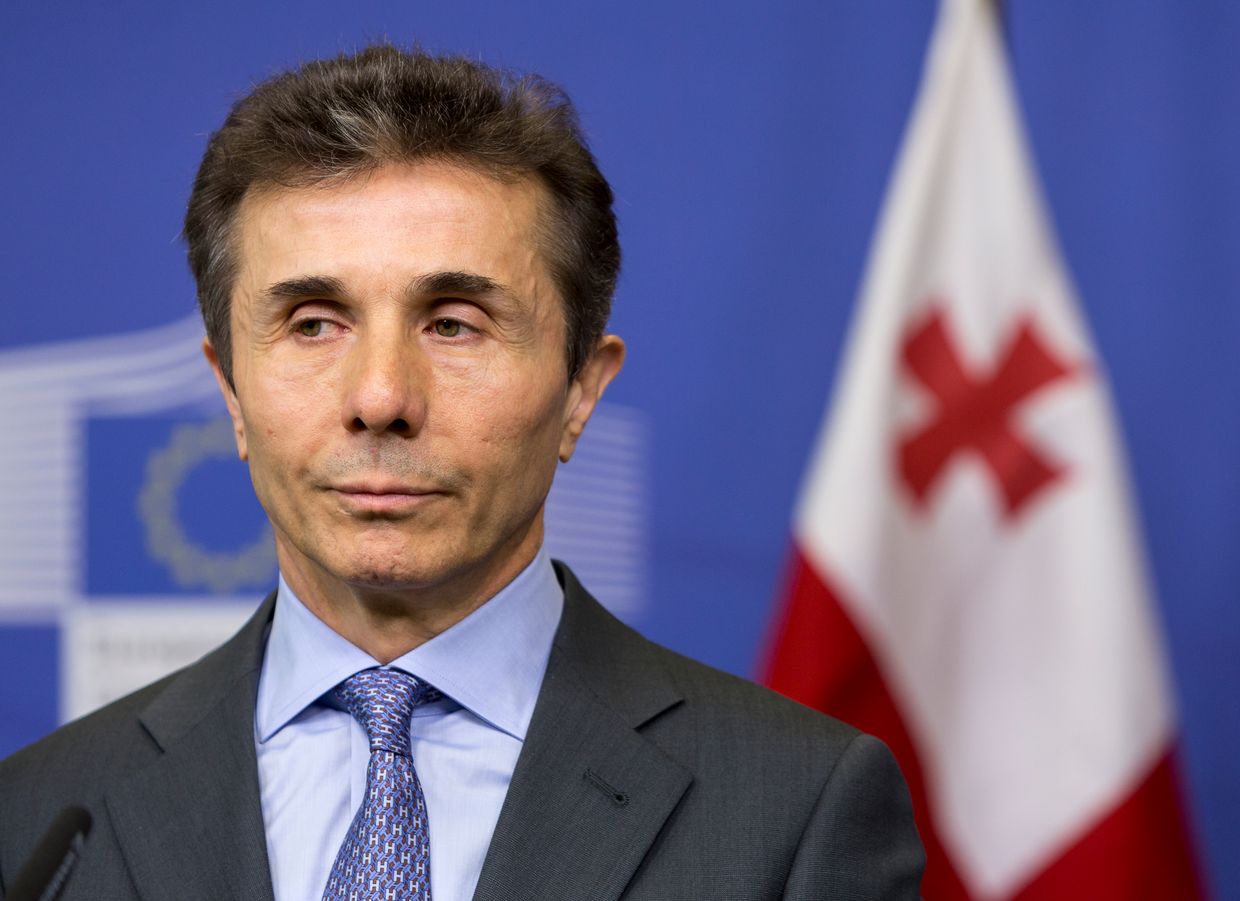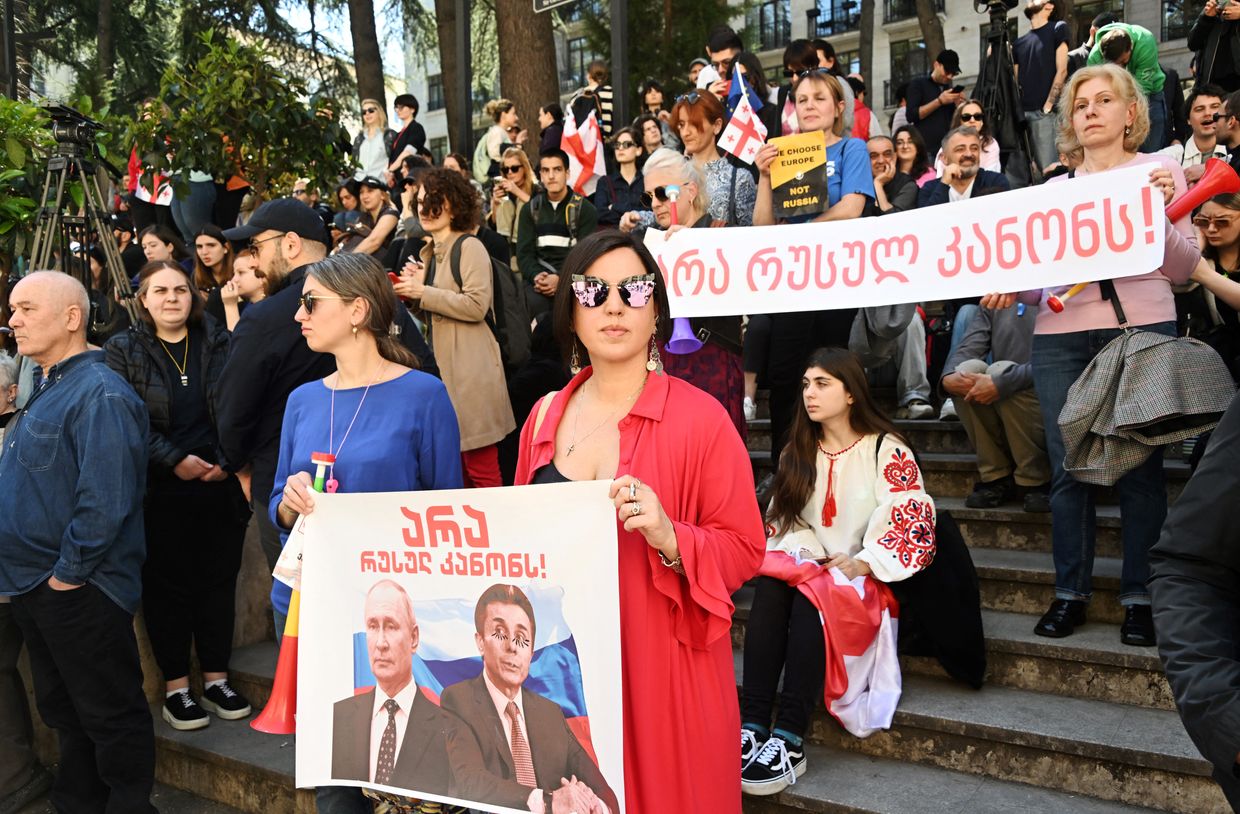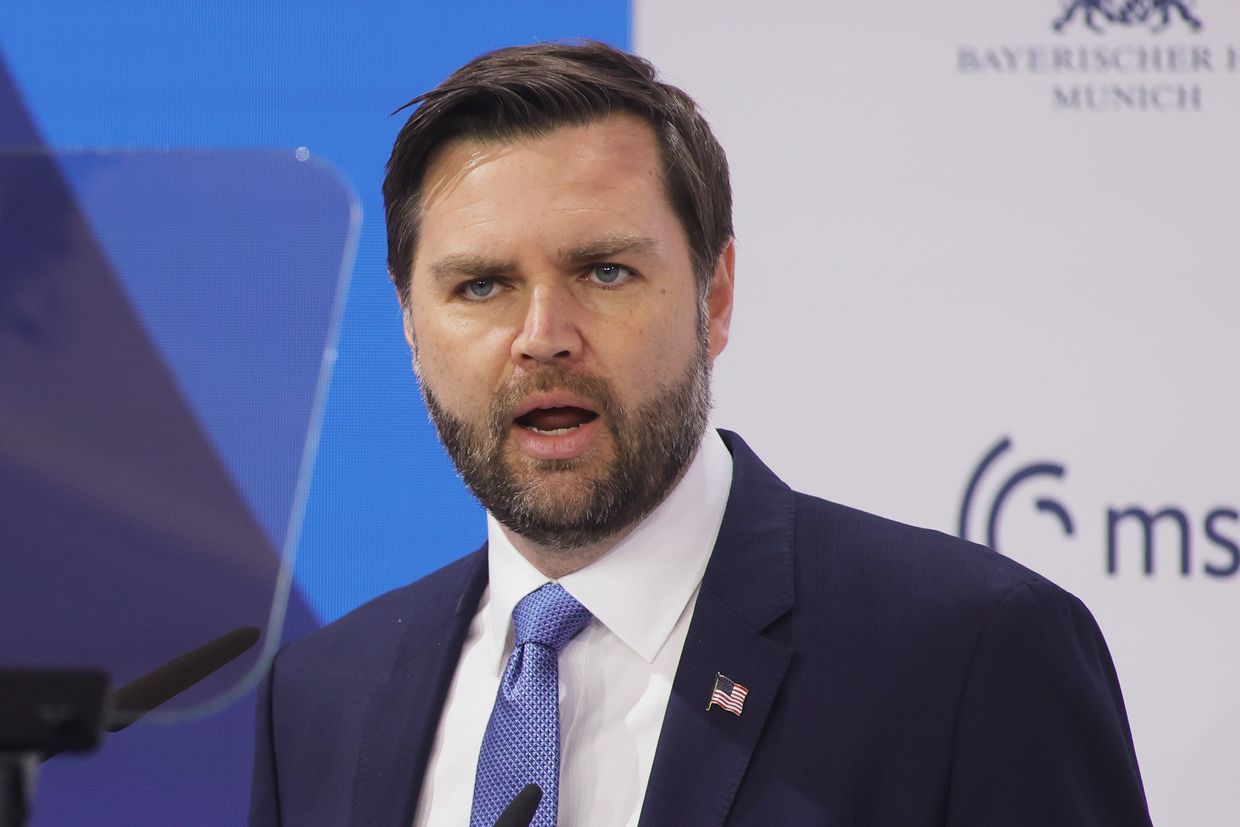The foreign agent laws adopted this year by Georgia and Kyrgyzstan are not fueling mounting authoritarianism and crony rule. They are the result of it.
Critics of the countries’ regimes derisively allude to the legislation cracking down on nongovernmental organizations that receive funds from abroad as “Russian laws.” This is only half true.
Russia’s draconian law, passed in 2012 and tightened since, brands organizations and individuals who receive money from abroad as “foreign agents” as a way of cracking down on dissent. The fines and bureaucratic obstacles that come with the label have forced some independent journalists and non-governmental organizations (NGOs) to stop operating.
Hard evidence that Moscow has directly masterminded the enactment of foreign agent laws in those countries is lacking. The fact that Russia has provided the inspiration – even the words – is plain enough, however.
Many laughed in Kyrgyzstan when parliament member Nadira Narmatova came forward with her proposal to tinker with the law regulating NGOs.
The government-loyal lawmaker had lifted huge chunks of text from the Russian legislation. Narmatova was, at least, careful to replace “Russian Federation” with “Kyrgyz Republic” where needed.
Three years later, the derision has given way to despondency.
At the start of April, Kyrgyz President Sadyr Japarov signed off on what has come to be known as “the foreign agent law.” Pedants in the government note that recipients of funds from abroad will be known as “foreign representatives,” but the effect is the same.
As Jeremy Laurence, a spokesperson for the UN High Commissioner for Human Rights, said in outlining his organization’s concerns: “Many of the affected NGOs could feel compelled to close to avoid being stigmatized as ‘foreign representatives,’ exposed to arbitrary checks by the authorities and having to pay for annual audits.”
The suspicion is that the rules will be enforced selectively and that groups advocating for rights and transparency will be subjected to paralyzing levels of scrutiny.
That fear is well-founded, but the reality is that a chill has long since descended on Kyrgyz civil society. Independent media have it the worst.
In January, police raided the offices of the prominent investigative reporting outlet Temirov Live and arrested 11 journalists. The group was later slapped with spurious charges of calling for mass unrest.
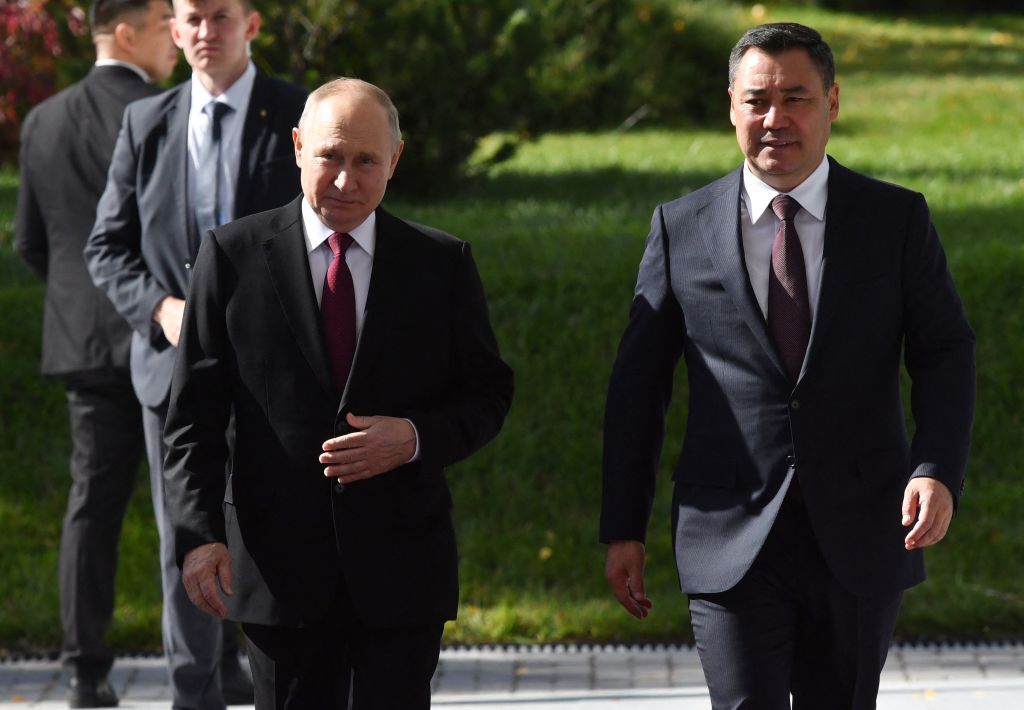
The founder of the outlet, Bolot Temirov, who has been based outside the country since being stripped of his citizenship and expelled in 2002, produced YouTube reports in the spirit of the late Russian anti-corruption crusader Alexei Navalany. His particular offense was to probe the apparent self-serving dealings of President Sadyr Japarov’s family.
The Kyrgyz authorities needed no tailor-made legislation to go after Temirov’s team or the dozens of politicians and activists it has thrown behind bars.
In pushing through their foreign agent laws so earnestly, the rulers of Georgia and Kyrgyzstan are seeking more than a convenient cudgel with which to neutralize their critics of the day.
The two countries bear few obvious similarities at first glance, but their political societies do share some qualities. In Georgia and Kyrgyzstan, rowdy street activism and punchy journalism have played a major part in influencing public life and politics.
With the role of parliamentary democracy waning in both countries, the potential for civil society to mobilize the masses has grown only more important for those who value accountability and the rule of law.
And again, the echoes of Russia’s experience are relevant here.
The Russian government fashioned and enacted its own foreign agent law amid the season of mass anti-government protests triggered by the rigged parliamentary elections of 2011. One gathering on Moscow’s Bolotnaya Square, within view of the Kremlin’s walls, drew tens of thousands of attendants. It was the largest rally of its kind Russia had seen in years.
The authorities drew a clear lesson from the fact that voting fraud was being documented by the likes of Golos, an election-monitoring watchdog that received funding from the United States Agency for International Development (USAID). Outside support for organizations trying to hold governments to account must be stopped, they concluded.
Officials in Georgia and Kyrgyzstan saw a good model to emulate. Political scientists call this authoritarian learning.
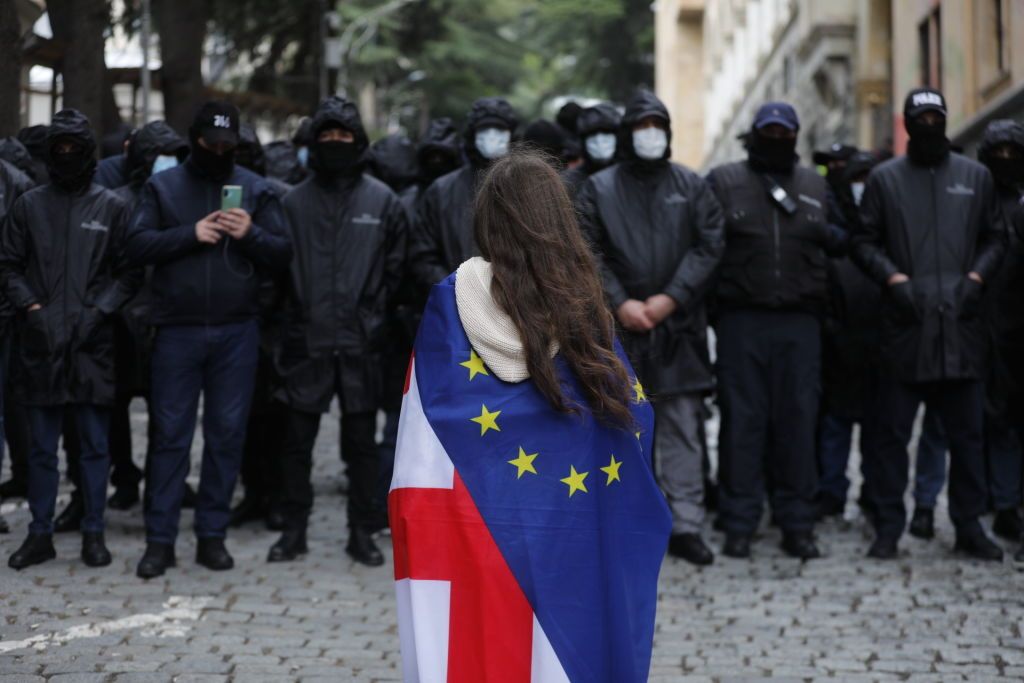
The efforts of an earlier Georgian government have made it so that corruption is not as pervasive there as it is in Kyrgyzstan.
But as the Tbilisi-based branch of Transparency International sees it, the threat posed by a regime free of checks and balances may be no less insidious. And the writing has been on the wall for several years already.
“As it stands today, a single person keeps a firm grip on Georgia’s executive government that has been made free of democratic checks and balances through weak parliamentary oversight and an unofficial pact of no interference and mutual support with an influential group of judges in complete control of the judiciary,” Transparency International concluded in a 2020 article.
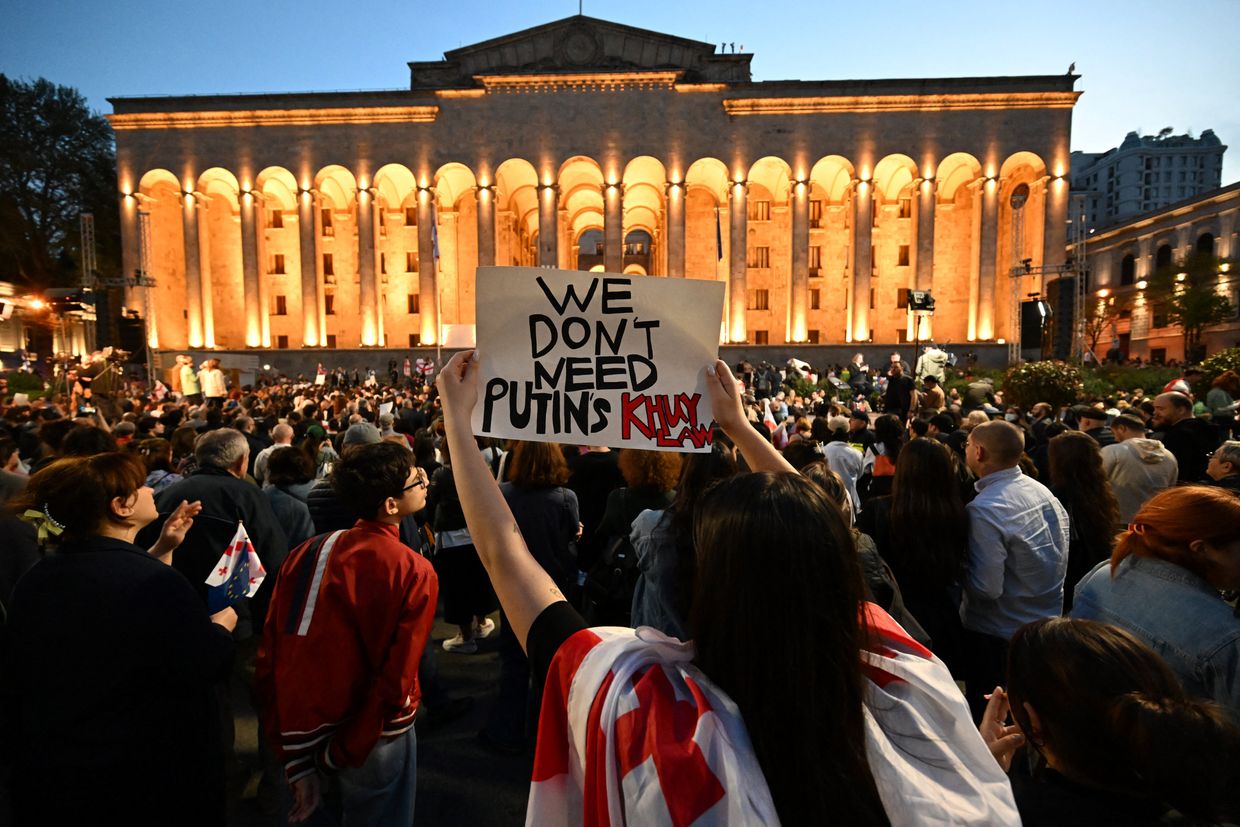
And to what end?
“High-level corruption in Georgia is taking the form of kleptocracy, where officials systematically use political power to appropriate the country’s wealth and undermine all critical voices, including political opposition, media and civil society,” Transparency International has written.
The single person in question is the founder of the ruling Georgian Dream party, Bidzina Ivanishvili, a businessman who made his billions in Russia in the 1990s.
With the process of what Transparency International described as “state capture” at the hands of Ivanishvili rapidly approaching its culmination, NGOs are the last line of defense.
This was the logic of pushing through a law that would have required groups getting more than 20% of their funding from abroad to adopt the scarlet letter of “foreign agent.”
In order to cast suspicion on opponents of the law, Georgian Dream representatives have borrowed heavily from the paranoia-flavored lexicon of Kremlin propagandists.

The normally reclusive Ivanishvili gave the game away when he delivered an enraged speech in response to huge protests in Tbilisi in May against the foreign agent law, which has since entered the statute books.
"The financing of NGOs, which presents itself as help for us, is in reality for strengthening (foreign) intelligence agencies, and for bringing them to power," Ivanishvili said.
Regardless of how limited an instrumental role Russia may have played in enabling Georgia and Kyrgyzstan to adopt their foreign agent laws, it will surely be on hand to benefit.
Kyrgyzstan’s economy is already deeply enmeshed with that of Russia, but the West is increasingly looking to engage with Central Asia. Deepening authoritarianism in Kyrgyzstan is likely to complicate that agenda.
Georgia’s Western economic partners have warned of the potential for the tensions provoked by the law to sap investor interest. Some European Union members are lobbying for an end to the visa-free regime for Georgian citizens.
That outcome could push Tbilisi further into the arms of Russia.
